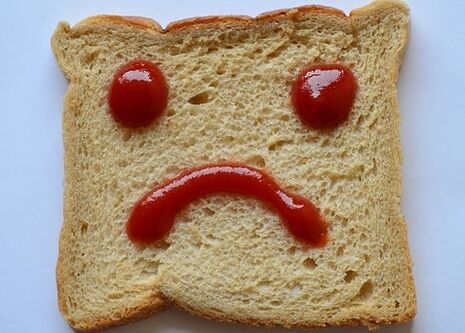
The Missing Staple
Yeast or Yeet?

A friend once asked me what the most delicious cup of tea that I ever had was. The question struck me as a category error: ‘delicious’ is not a word I use to talk about tea. I would describe a good cup of tea as satisfying, thirst-quenching or decent. In this respect, having grown up in Poland with an English father, I am thoroughly British. But on other matters, my heart lies on the other side of the Channel. Among these is bread. To put it bluntly, you can’t get proper bread in the UK. Sweeping statement? I would argue it is not. Ask some friends from the Continent their opinion about British bread and admire the unanimity of the verdict.
In Britain, there are three choices: the strangely sweet packaged stuff that doesn’t go stale but rots; the crusty fluff in paper packages that ensure that it does go stale; and the goji berry spelt sourdough from the hipster baker down the road. The culprit behind the first two is a piece of devilry known as the Chorleywood bread process, which, ever since its invention in 1961, has ensured that most bread in Britain has all the bite of candy floss.
What is missing is real bread. Ordinary bread. The affordable kind, with a fibrous wheaty texture and a nutty crust. One that you buy at the corner shop or the local bakery and spend no more than a pound on. The kind that is moist when fresh, and perfectly toastable when stale. A decent slice. An honest staple. The Brits, meanwhile, have desensitised their palates by munching on drab cuboids of Hovis. This tragedy extends to such an extent that they react to any complaints like a mildly offended Italian waiter who is told that none of his extensive range of herbal infusions is actually tea.
Perhaps part of the story is, as ever, economical, and comes down to the replacement of the local bakery and corner shop with the Sainsbury’s bakery section. If so, then the predicament is not exclusive to baked goods. Consider the tomato. Its basic supermarket incarnation is pale, stemless, watery, and hard. In plastic it is grown and in plastic it is packed. You’ve got to pay extra to taste the difference. If you do, the tomatoes come on a stalk, in a cardboard tray and with a ruddier complexion. Better still, you can go to the market where the socially liberal tomatoes are odd, colourful, and free.
“Vast swathes of Europe have seen their local produce gentrified but still have perfectly decent bread.”
But here’s the rub: you pay for every flaw. There was a time, of course, when natural meant normal. In Poland, unbusinesslike sellers still provide fruit and veg without charging for every charming deformity and the novelty of buying at a greengrocers. Still, it can’t be long before farmers notice that customers will pay double for anything that’s branded ‘eco’. Another country will fall to the eminently sensible idea of paying for quality.
But economics can only be part of the explanation. Vast swathes of Europe have seen their local produce gentrified but still have perfectly decent bread. The gist of it is that the British seem content with a choice of white fluff and brown fluff for breakfast. Occasionally, they splash out on stone-baked rye and chia seed baguettes — but only when guests come around. Ignorance may be bliss, but please don’t laugh at foreigners who choose to bring a loaf from home.
